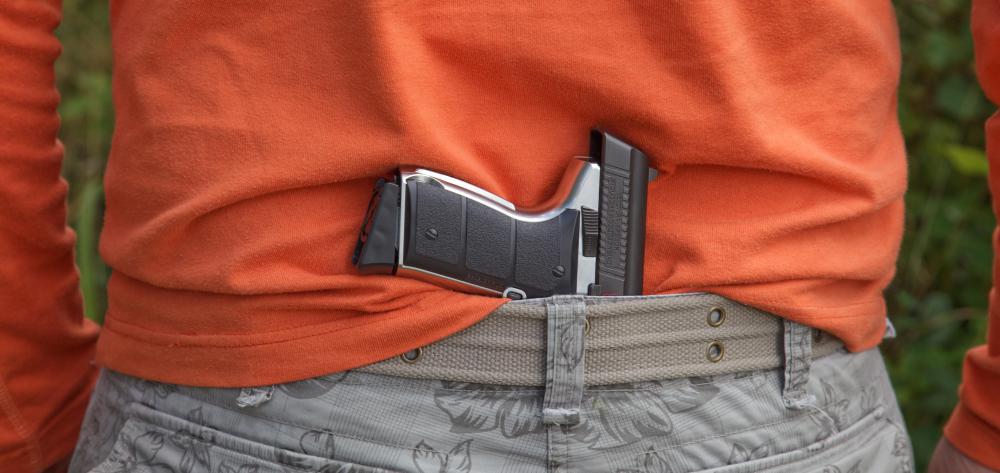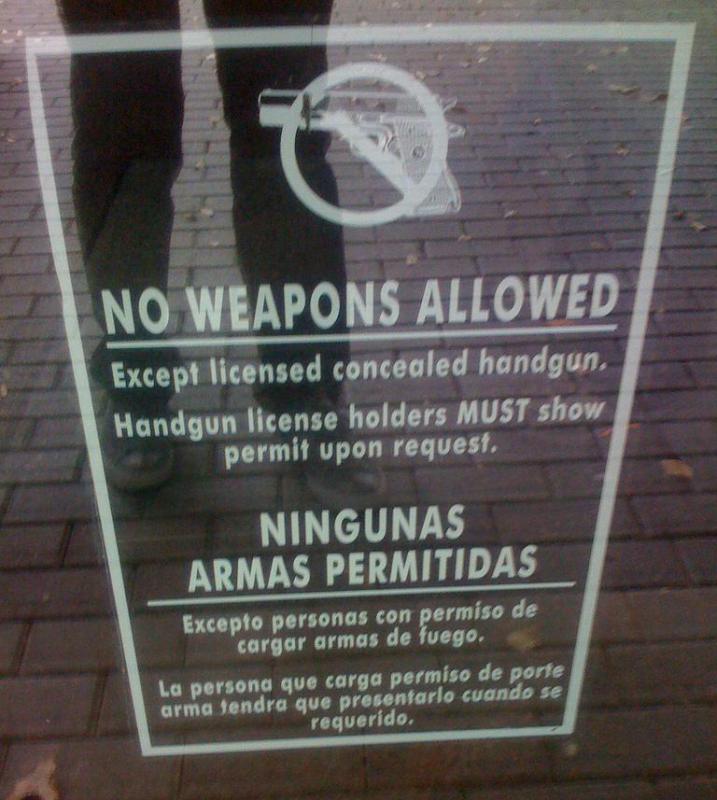At MyLawQuestions, we're committed to delivering accurate, trustworthy information. Our expert-authored content is rigorously fact-checked and sourced from credible authorities. Discover how we uphold the highest standards in providing you with reliable knowledge.
In the United States, what is a Concealed Carry Permit?
In the United States, a concealed carry permit allows a person to legally carry a weapon, usually a handgun, concealed on their person or within their immediate vicinity, for self defense. In areas where a concealed carry permit is required, being caught with a handgun on your person without a permit often leads to fines and possible jail time. There are a few states that allow anyone of age to carry a concealed weapon as a basic right, without a permit.
Although most states will issue a concealed carry permit, the method to obtain one often differs greatly from state to state. Some states, such as Pennsylvania, require a person to apply for a concealed carry permit directly through their local law enforcement office. If the person is decidedly of "good character," and without a previous felony conviction, the permit will be provided for a small fee.

Other states may be more restrictive. In Maryland, for private citizens to obtain a concealed carry permit, they must provide evidence that they have been the victim of recent threats or robberies. In Hawaii, though it is legal to issue a concealed carry permit, officials often choose not to under any circumstance. Washington, D.C., Wisconsin, and Illinois do not issue any form of concealed weapon permit.

The license to carry a concealed weapon does not allow people to use one however they please. Using the weapon to threaten another without provocation is prohibited, as is carrying a concealed weapon while intoxicated. Many states require that a concealed weapon be used only as a last resort in situations where life is threatened. On the other side, some states allow the licensee to use the concealed weapon to protect their personal property or the life of another. In short, the use of a concealed weapon is usually legal only if the person is licensed, there is no opportunity to escape, and life is threatened.

Many areas are designated as "gun free zones," such as churches, schools, shopping malls, and hospitals. In these areas, no one outside of law enforcement is allowed to carry a concealed weapon. Some research indicates that these areas actually draw the attention of criminals, since there are no private citizens with concealed weapons.
AS FEATURED ON:
AS FEATURED ON:













Discussion Comments
@Terrificli -- in cases like these, courts tend to ask one question -- is the law a reasonable restriction that will protect citizens? If the answer is "yes," such bans on rights guaranteed under the Bill of Rights have been upheld. If the answer is "no," then the law will be struck down.
In the case of public places that are owned by private citizens, then, the notion is that a state has a justifiable interest in preventing crime and that banning firearms from those places is a reasonable restriction.
Think of it this way -- you can't yell "fire" in a crowded movie theater. You have a First Amendment right to free speech, but restricting people from doing things that could people in danger (such as creating a mob of people trampling on each other to escape a fire) is a reasonable restriction of free speech.
How, exactly, did states gain the right to designate public places that are owned privately as gun free zones? It makes sense that a state could ban guns in public schools as those are public property. That is completely different from prohibiting guns from, say, churches. Shouldn't that choice be left up to the church rather than the state?
That's not to say that it is a good idea to tote a gun to church. However, it has been an established principal that private property may be enjoyed by its owners in whatever way seems both appropriate and legal. The state's decision to abridge that right just right when it comes to some private property seems a bit odd.
Post your comments